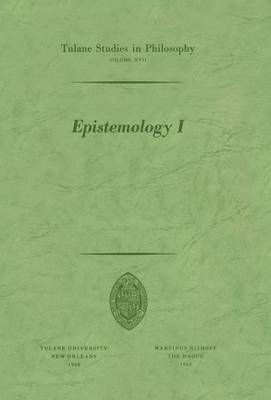Due to the unprecedented interest which the announcement of the topic of epistemology evoked from contributors, two annual volumes will be devoted to it. This volume accordingly is entitled Epistemology I, and the next volume will be entitled Epistemology II. The Editor KNOWING IN THE STRONG SENSE PETER M. BURKHOLDER Professor Norman Malcolm has defended what he calls "the strong sense" of "know." 1 It is one of the propositional senses; i.e. what is said to be known, in this sense, is an item of information rather than a person, a poem, a physical object, or a skill. According to· Malcolm, this sense of "know" is important and useful.' Philosophers have had it "in mind when they have spoken of 'perfect,' 'metaphysical,' or 'strict' cer tainty" (Ke, 70). Moreover, laymen use it when they profess to know such obvious truths as "2 + 2 = 4" or "This is an ink-bottle" (said while peering at and poking an ink-bottle). Nevertheless, in spite of his opinion that it is important, Malcolm has not given a detailed analysis of the strong sense of "know." Thus we may be justified in studying it, first to determine exactly what it is, and then to evaluate it. I do not, of course, wish to suggest that Malcolm necessarily WQuid accept my account of the strong sense as an accurate expli cation of his opinions. However, in its descriptive aspects my analysis seems compatible with his written statements.
- ISBN13 9789024702916
- Publish Date 31 July 1968
- Publish Status Active
- Publish Country NL
- Publisher Springer
- Imprint Kluwer Academic Publishers
- Edition Softcover reprint of the original 1st ed. 1968
- Format Paperback
- Pages 124
- Language English
